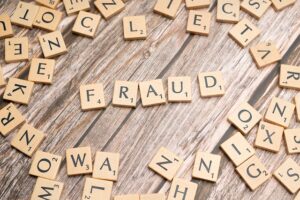 Fraud impacts on all levels of society, hurting both large enterprises and small businesses alike, not to mention governments and individuals. Indeed, a new study by Experian has found that 286,000 small businesses in the UK have been the victim of fraud, losing a total of nearly £8 billion during their time in business.
Fraud impacts on all levels of society, hurting both large enterprises and small businesses alike, not to mention governments and individuals. Indeed, a new study by Experian has found that 286,000 small businesses in the UK have been the victim of fraud, losing a total of nearly £8 billion during their time in business.
Furthermore, separate research by BDO revealed that the number of fraud cases rose to a record 546 last year, up from 525 in 2013. The startling figures illustrate why fraud investigations, such as those assisted on by the forensic accounting experts at Frenkels Forensics, are so important to many people.
Of course, fraud is a very broad term for a certain type of criminal activity and fraud investigations can include civil fraud, employee theft, criminal fraud and proceeds of crime.
When fraud has been conducted, the challenge is often to follow the paper trial and determine who did it, how they did it and how much was lost or gained from the illegal activity. With the amount of fraud that now takes place online, this process might include a computer forensics investigation.
However, in fraud investigations it is not only the victim or claimant that requires help; the defendant – the person who carried out the fraud – can also often require assistance to ensure the evidence prepared by the Crown Prosecution Service is consistent with the case.
So for both claimant and defendant alike, the services of experts who know how to analyse the information, assess the full monetary values associated with the case and then put the facts forward in a court-friendly document is essential in ensuring justice is done.
For expert help with any fraud investigations contact Frenkels Forensics for an independent appraisal.
Alternatively, if you’re looking for advice in any aspect of forensic accountancy, then do get in touch via Twitter, Google+, LinkedIn or by visiting our website www.frenkels.com
By Vitek Frenkel – find me via Google+.
